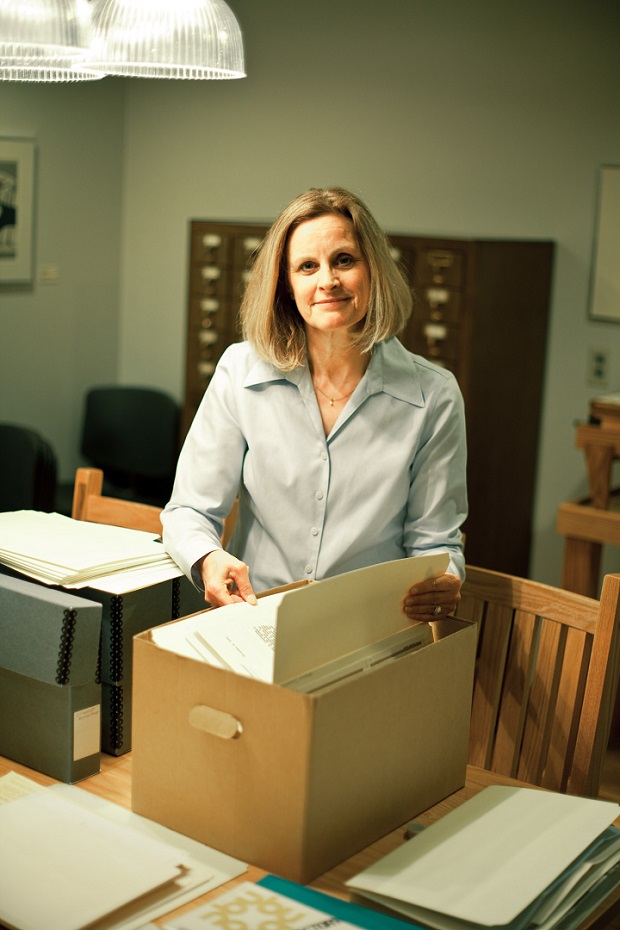
In the 17 years since Karen Morin earned her doctoral degree in geography from UNL, she's been one busy alum.
"I never run out of project ideas," Morin said. "I'm pretty ambitious in that way."
For the past decade, Morin has been active with the Lewisburg Prison Project, a prisoner rights group in Pennsylvania. Her work with that group has led to an interest in critical prison studies.
"I've got a number of projects in the works that deal with what I'm calling the 'spatial violence' of American prisons and jails, as well as a bigger historical-geographical study of the American 'carceral past,'" Morin said.
Currently, Morin is a professor of geography and serves as associate dean of faculty in the social sciences at Bucknell University, a primarily undergraduate liberal arts school in Lewisburg, Pa.
"Bucknell is a very different kind of place than UNL," she said. "As such, it can feel worlds away from Oldfather Hall, Sheldon Art Gallery and Husker football. That can still be challenging, but I love my work and feel privileged to do it, especially to have the ability to stay active in geographical research while trying to help social science faculty at my university do their jobs well."
Morin's work has spanned several historical geography tracks over the years, including the history of geographical thought and literacy in North America; 19th century travel writing; British and American post-colonialisms; the geography of religion; and most recently, critical prison studies.
During her time at UNL, Morin encountered several professors who helped guide her toward the study of feminist historical geography. She lists David Wishart, professor of geography; Jeanne Guelke, professor emerita of geography; and Frances Kaye, professor of English, as instrumental in her developing an interest in academia.
"It was meeting David and Jeanne who really inspired me toward academia, as both were pioneers in American historical geography, of indigenous geography and feminist geography respectively, and who got me thinking about relationships between sense of place, personal identity and history," Morin said. "Fran Kaye was also such an inspiration, both as a person and as a thinker."
At the time, Kaye served as the editor of the Great Plains Quarterly and Morin took on an editorial assistant position at the publication while she worked on her graduate studies.
"Through that job, I not only learned what was going on intellectually in many related research fields, but also gained an appreciation for the Great Plains aesthetic that I frankly didn't have growing up as a 'town girl' from Lincoln," Morin said.
Morin's discovery of feminist geography ultimately sealed her interest in becoming an academic. She also credits the "big changes" happening throughout the academy in the 1980 and '90s – relating to women's writing, work, lives and travels – that further piqued her fascination with academia.
"I was excited to be a part of that," Morin said.
Her first academic job out of Nebraska was as a visiting lecturer in geography at the University of Waikato in Hamilton, New Zealand. From there, Morin took a job as an assistant professor of geography at Bucknell, where she's been ever since – with the exception of another year at the University of Waikato a few years later, a couple of Fulbrights and fellowships in other places along the way.
Morin has contributed to numerous publications and scholarly articles, and is the author of "Civic Discipline: Geography in America, 1860-1890" and "Frontiers of Femininity: A New Historical Geography of the Nineteenth-Century American West."
"My education at Nebraska prepared me well for my career," Morin said. "I would tell students to tune into your sixth sense that tells you when you've found what you love to do, and that resonates with the progressive social changes you'd like to help make happen in the world."
— Mekita Rivas, Natural Resources